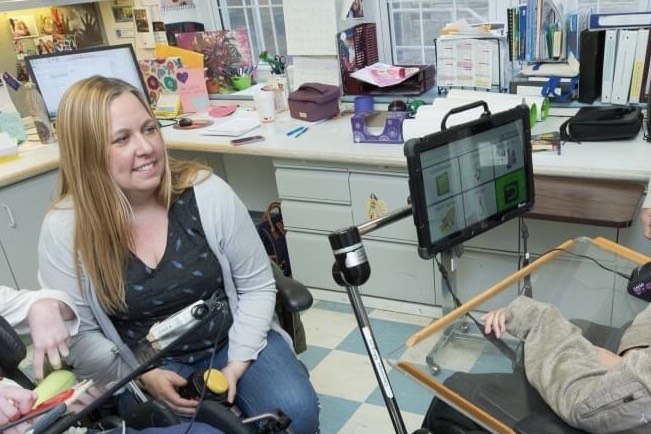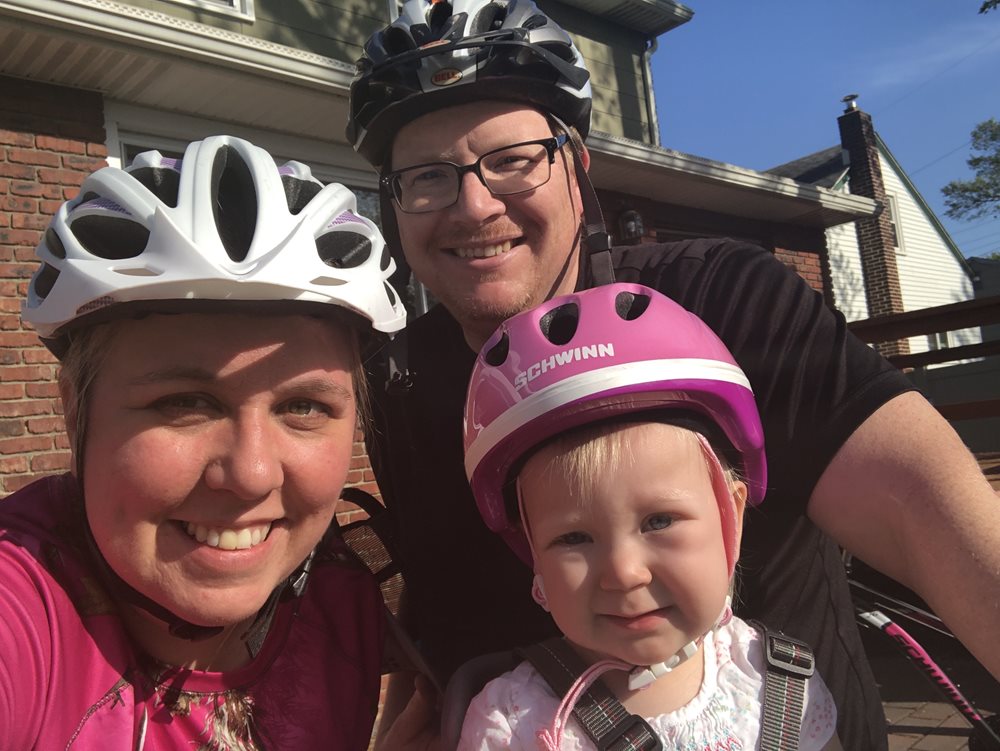Faculty Focus: Jacqueline Pittam
Jacqueline Pittam, MEd, MS, CCC-SLP, really likes exposing her students at the Speech-Language Institute (SLI) to alternative methods of communication. After all, her specialty as a clinical instructor is Augmented and Alternative Communication (AAC).
So when the COVID-19 pandemic gripped the nation and forced Salus University faculty to shift to online learning, it was just another alternate form of communication that both Pittam and her students could explore.
“It’s really interesting how that does carry over and the technology involved in it. It needs to be creative and different,” said Pittam, who joined the SLI team in 2017. She also teaches at a school for children with disabilities in Philadelphia and conducts some private therapy as well.
 What Pittam teaches her students at SLI is that teaching someone how to use communication devices to talk involves the same techniques one would use in order to expand on language with a verbal speaker. For example, modeling use of the device, and adding complexity to simple language initiated by the language learner.
What Pittam teaches her students at SLI is that teaching someone how to use communication devices to talk involves the same techniques one would use in order to expand on language with a verbal speaker. For example, modeling use of the device, and adding complexity to simple language initiated by the language learner.
“I thought it would be more difficult to work with the population that I specialize in via teletherapy, but it’s actually been a great opportunity. We get to work closer with families now because we need them to help facilitate the communication intervention, making it much more of a coaching model,” she said. “What’s great about it is that it’s creating more buy-in from the family and more carryover. Now my students are getting more examples of their type of communication in their natural environment. Parents now understand how to model that communication for their children and are doing it outside of our therapy sessions.”
Pittam’s experience with virtual teaching suggests to her that moving forward, the virtual model could supplement the clinical experience.
“I work with a lot of medically fragile students at my other job. I think it could also create some opportunities at SLI for people who are more medically fragile to have more access to therapy if they can’t leave their home or if they’re in the hospital,” she said. “And, for some students who have extended absences from school, I think it could really expand our clientele at Salus and it could give opportunities to students who often miss a lot of days in school to get therapy in the interim. I think it would be interesting to see a combination of the two in order to create that carryover with families.”
Pittam graduated from the College of St. Elizabeth in Morristown, N.J. with a bachelor’s degree in History/International Studies and a minor in Political Science. She then went on to earn her Master of Education in Secondary Education with a concentration in Social Studies from Arcadia University and her master’s in Communication Sciences and Disorders from Penn State.
 She has also conducted research about the relationships between parents of children with autism and professionals, and augmentative and alternative communication for children with multiple disabilities.
She has also conducted research about the relationships between parents of children with autism and professionals, and augmentative and alternative communication for children with multiple disabilities.
In addition to her teaching responsibilities, Pittam keeps busy as a mother of a 19-month-old toddler and two stepchildren, ages eight and 10.
And, when she finds some rare time to herself, she enjoys yoga and practicing mindfulness, reading, listening to podcasts, watching Netflix shows with her husband, baking, knitting, family bike rides and party planning — themed parties for her kids and friends.